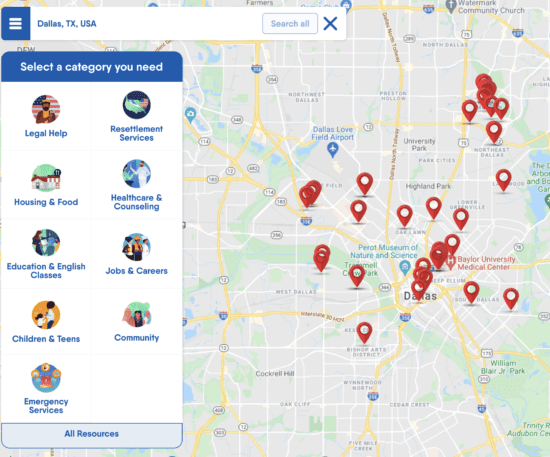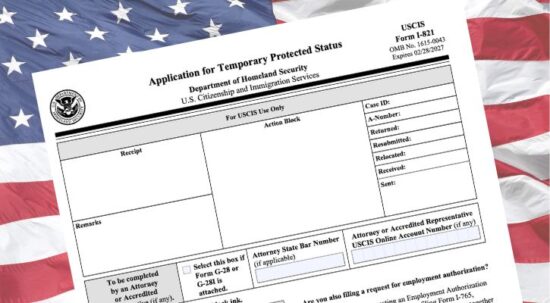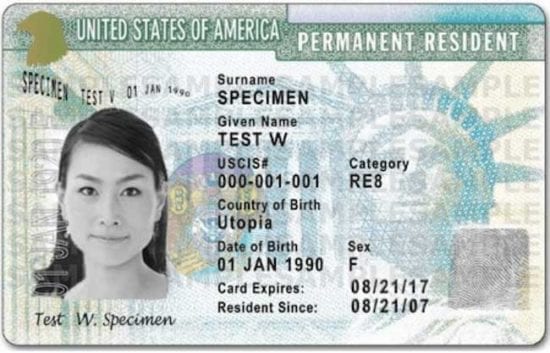What is DACA?
DACA stands for Deferred Action for Childhood Arrivals. It is a program that gives protection to certain people who entered the U.S. as children and meet guidelines set by the Department of Homeland Security (DHS). It allows them to apply for a driver’s license, social security number, and work permit. It also offers deportation protection.
What is the current status of DACA?
DHS announced a final rule to continue the DACA program that went into effect on October 31, 2022. This rule means there are no changes for current DACA recipients and their ability to renew.
If you were granted DACA before the court decision on July 16, 2021, you will continue to have DACA as long as you renew. You will also be able to renew your EAD for work authorization and request advance parole for travel (this currently includes if you are in Texas).
On March 11, 2025, the 5th Circuit Court ruled that USCIS is allowed to process new DACA applications. This means people can apply for DACA for the first time. But so far, USCIS has not approved any new applications. It is still uncertain if or when they will start.
If you do not have DACA, talk to a lawyer before you apply. A lawyer can help you understand the risks and benefits.
2024 announcements
The Biden administration announced rules in 2024 that affect DACA recipients.
- Eligible DACA recipients can get healthcare insurance through the Affordable Care Act (ACA) starting November 2024. The government has shared plans to end this but is still currently allowed.
- A new policy on D-3 waivers will help DACA recipients who have earned a degree in the U.S. and have a job offer in their field of study to get work visas faster.
What is going to happen to DACA?
The future of DACA is uncertain. DACA was ruled unlawful in the courts but the DACA program has not ended.
The latest ruling is likely to be appealed to the Supreme Court. That could take time. Depending on what happens, a decision probably could not be made until 2025. Congress could also act, although that is unlikely.
It is important to continue to renew your DACA in the meantime. We will keep this page updated.
How can I renew my DACA?
You can still renew your DACA. Renewals last 2 years. You will need to submit Form I-821D online or by mail.
(https://youtu.be/dB55mkF-4tk)
You must meet the following requirements:
- You have not left the USA on or after August 15, 2012 (without advance parole).
- You have continuously lived in the USA since your most recent DACA approval.
- You have not been convicted of a felony, a significant misdemeanor, or three or more misdemeanors.
If your DACA expired less than a year ago, you can still submit a renewal application.
TIP: apply for renewal 120 to 150 days before your current DACA expires to avoid disruption of status.
Yes. Workers with DACA can continue to renew their DACA and work authorization. Work permit requests are filed with Form I-765 and Form I-765WS.
DACA employees are not required to tell employers they have DACA. Firing employees who have the legal right to work (like DACA recipients) based on their immigration status might violate federal law. If you believe you have suffered discrimination, you can call the Department of Justice’s Civil Rights Division at 800-255-7688.
Advance parole is a permit to leave the USA and come back. This permit must be received before you leave the country. Advance parole will be considered for DACA recipients, but it is not guaranteed.
- If you currently have advance parole, it is valid until it expires.
- If you travel outside the United States without advance parole, your DACA will be canceled. Speak to a lawyer or trusted immigration professional before leaving the USA.
Yes, you can still apply, but you may not be able to get DACA. Although USCIS will still accept first-time applications, it is not clear if and when they process them.
Contact an immigration lawyer to discuss this option first. Review if you are eligible for other benefits. Also, beware of notarios and others who are seeking to charge to “save you a spot in line.”
If you decide to apply, you will be providing your personal information to the U.S. government. If your application is denied, you will risk being detained and deported.
If you have a pending initial DACA application, you do not have to file a new application. USCIS may continue processing them in the future.
First-time applicants for DACA must meet the following requirements:
- You were under the age of 31 on June 15, 2012 (born after June 15, 1981).
- You are currently 15 years old or older or are under 15 but in removal proceedings.
- You started living in the US before your 16th birthday.
- You started living in the US before June 15, 2007, and have lived here ever since.
- You were physically present in the US on June 15, 2012.
- You had no lawful immigration status on June 15, 2012, and at the time of applying for DACA.
- You have not had any serious trouble with the law.
- You are in school (including a GED® program), have graduated, or served in the military.
TIP: Start collecting documents that can help you prove the requirements.
Remember, USCIS is accepting new applications but is not processing them. If you decide to apply, you will still have to pay the fees. Please check the fees before sending in your application.
If you have more questions, you can speak to a USCIS representative by calling their Contact Center at 800-375-5283 (TTY 800-767-1833).

Study for your GED® or HiSET credential online so you can go to university or find a better job.
Find help
It is important to get help if you can. Many organizations and lawyers offer free or low-cost legal services. Here are organizations that help people with DACA:
Organization | Offers |
|---|---|
Free assistance with DACA renewals | |
Free assistance to help renew and apply for DACA | |
Offers an annotated DACA application form with notes to help you fill it out | |
Offers a step-by-step guide to eligibility and applying for DACA | |
Resources for DACA applicants and recipients | |
Offers a step-by-step guide on how to apply and renew your DACA that includes virtual preparation sessions |

Find legal help, English classes, health clinics, housing support, and more. Search a local map and list of services for immigrants in the USA with the app FindHello.
The information on this page comes from USCIS, DHS, American Immigration Council, National Immigration Law Center, and other trusted sources. We aim to offer easy to understand information that is updated regularly. This information is not legal advice.





